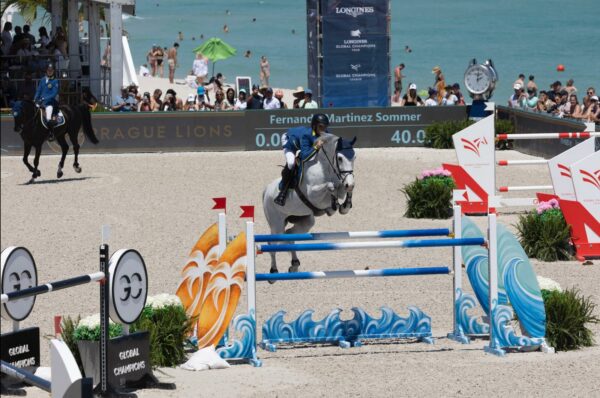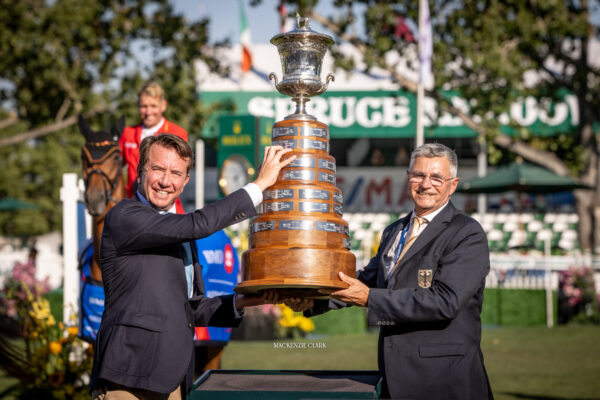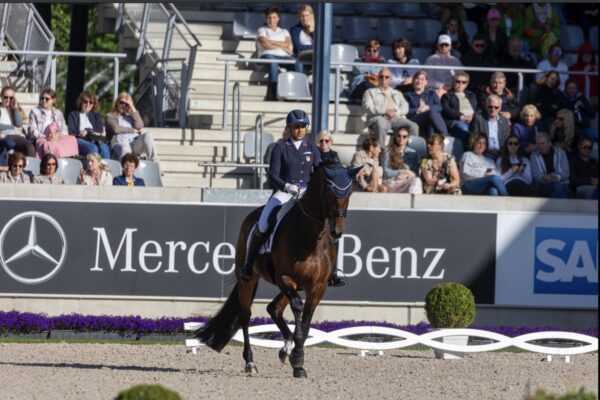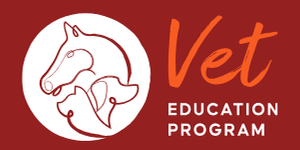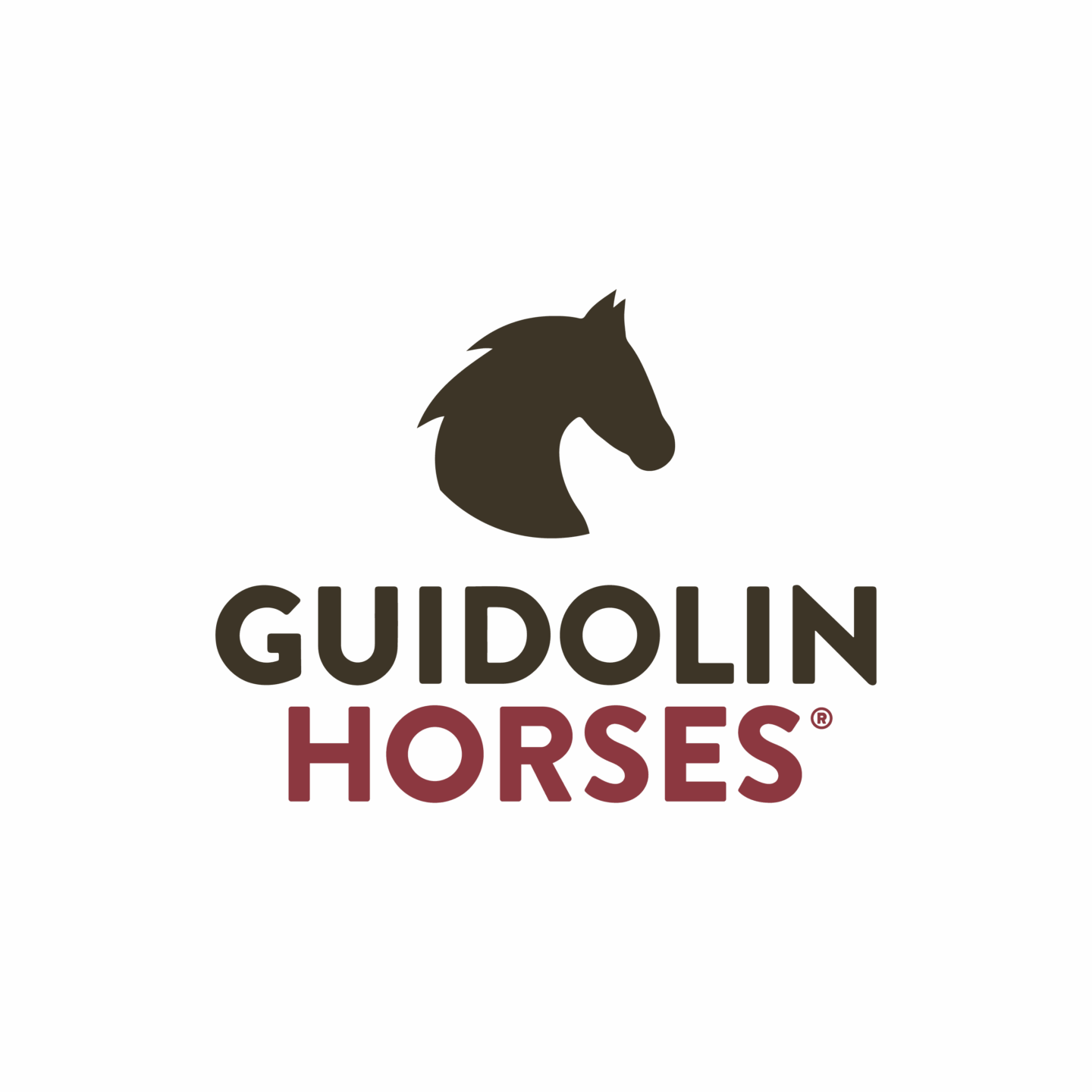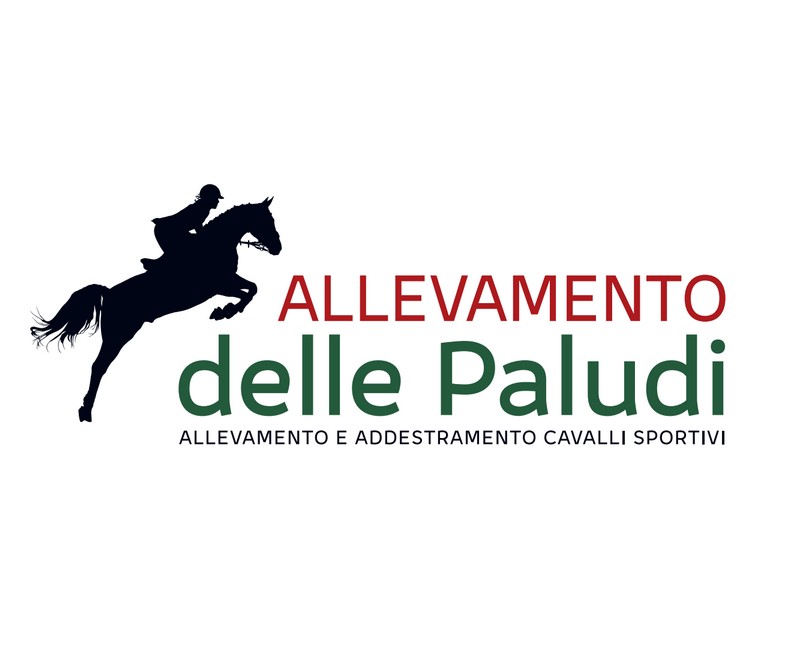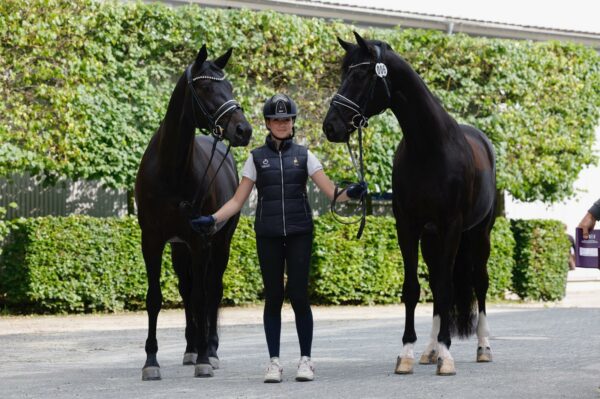
The “German Lessons”
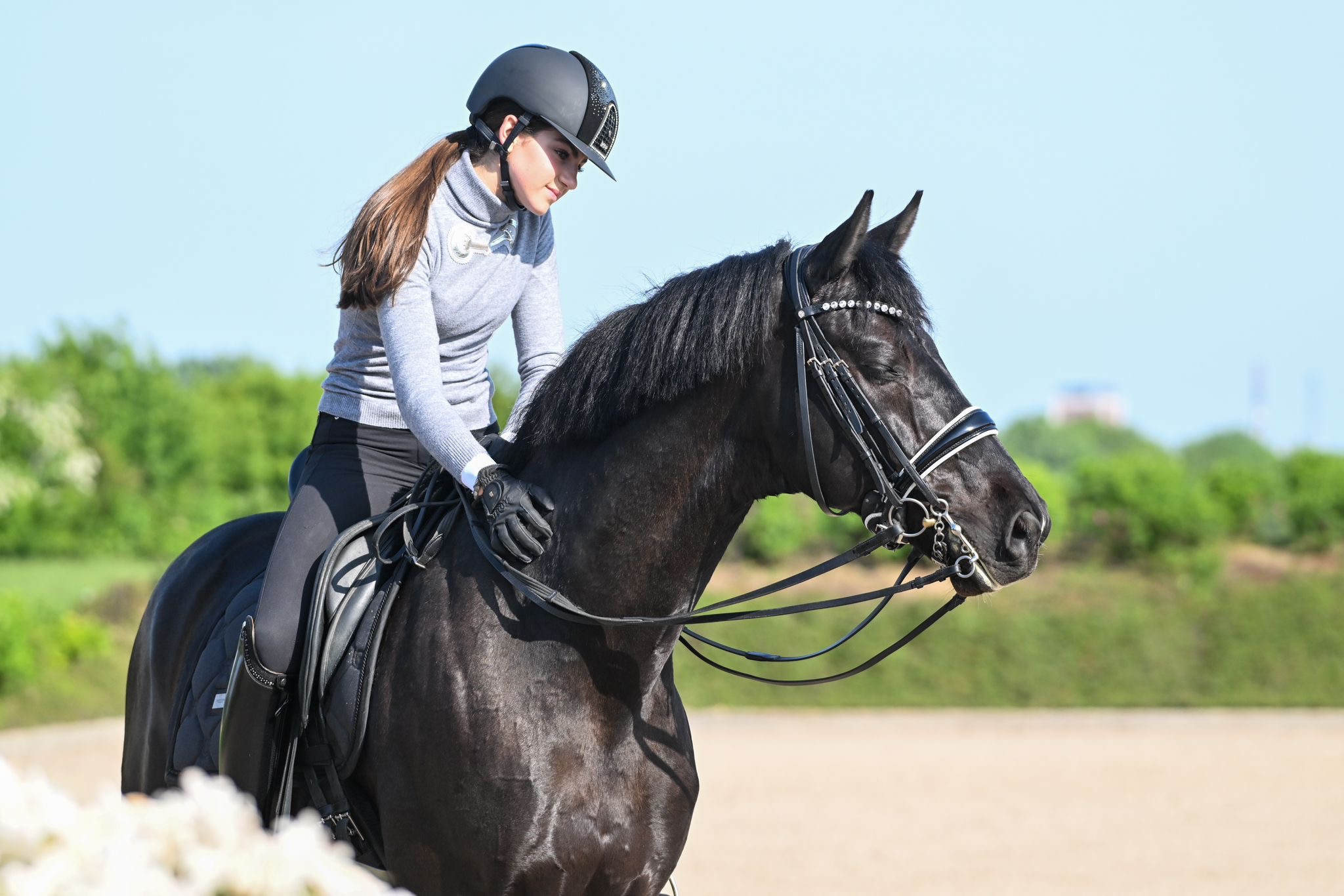
Virginia Spoenle, our “correspondent” from Germany, takes us through a narrative based on her personal experience to analyze the differences in dressage between two geographically close yet culturally distant locations—the birthplace of dressage, Germany, and Italy.
When Manzoni wrote The Betrothed, he went to “wash his clothes in the Arno,” meaning he went to the birthplace of our language to improve his novel. Similarly, Germany for dressage is much the same. As the undisputed homeland of the discipline, it produces, generation after generation, champion horses and riders.
So, what better opportunity for our young talents than to “steal” a few tricks from those who have made dressage a national sport? For our Virginia, however, the situation is a bit different. Of Italian-German descent, the young promise of Italian dressage has always lived and ridden in Germany but, donning the Italian colors, she also knows our country very well from a sporting perspective.
A Strategic Location
Undoubtedly, Germany is a land of horses; the vast plains help in executing large-scale projects, while tradition adds its contribution. Of course, this is coupled with the relentless study and desire for improvement among German breeders. Germany is also centrally located in Europe, making it a strategic crossroads.
As Virginia points out, the stables where she keeps her horses, which are also the prestigious home of Isabell Werth, are located near the borders of the Netherlands and Belgium, allowing for international trips (and I must say, truly international ones!) without the need for lengthy, stressful journeys for the horses, which are also costly for those who must undertake them. Because, while it may seem in poor taste to talk about costs, they are inescapable when planning a competitive season.
A Constantly Active Breeding Program
Another aspect that our “voice from Germany” highlights is the number of riders. To borrow a football term, Germany has an impressive breeding program, making it much more likely to discover exceptional talents among the larger pool of riders, and not just the riders but also, and especially, the horses.
The higher the numbers, the greater the level of competition, starting with the children, which results in a continuous upward curve. As we know, when competing at a high level, the desire to “raise the bar” grows significantly.
This is not to undermine the exceptional progress Italian dressage has made in recent years, thanks to a team of instructors, trainers, technicians, and judges who, working in synergy with the riders, are growing exponentially. However, a numerical comparison remains impossible, and this will always play against us Italians.
Endless Work
Virginia is fortunate to breathe dressage daily, drawing inspiration from one of the most successful and undoubtedly most organized stables in the world. But she insists on highlighting one key point: the secret is simple—work, work always and a lot.
“Observing Isabell’s work is a lesson in itself. No detail is ever overlooked. She is tireless. The best example I could have. One thing I’ve learned from her is that every horse has its own pace. Patience and calmness are required in training. Results come, sooner or later.”
Isabell Werth certainly has some kind of superpower—otherwise, she wouldn’t be the Queen of Dressage—but it’s not only this that makes her a “Wonderwoman.” It’s mainly her passion and dedication, values she instills in anyone fortunate enough to work with her.
One must never stop, never think they’ve reached the top. “For example,” Virginia continues, “last April, Isabell and Quantaz participated in the World Cup Final in Riyadh, Saudi Arabia on Friday evening. I arrived at the stables on Saturday morning around 9 a.m., and Isabell was already on horseback. As I said, she’s tireless.”
A Good Rest
However, periods of intense work must be followed by periods of physical and mental rest. “My horses are exercised every day,” says the young rider. “If I can’t ride due to school commitments, my trainer takes over. However, my horses, like all the others at the stables, from the young ones to the Olympic champions, enjoy at least a couple of hours of relaxation in the paddock every day, where they can just be horses.”
In general, at least a couple of days of rest each week are recommended for both physical and mental well-being. After all, the success of a champion is built on overall well-being.
Fingers Crossed for the New Year
On our part, we can only wish the best of luck to our Italian correspondent for a 2025 full of emotions and successes, hoping that it will culminate in her participation in the European Championships, which narrowly escaped her in 2024.
“Bob Marley and I qualified, but the day before the competition, my horse wasn’t feeling well. So, after consulting with Laura Conz, we decided to withdraw.
It was a big disappointment—we had worked hard for the qualifications, and I would have really loved to participate. But the well-being of my horses always comes first.” So, let’s keep working hard, and we’ll hear from Virginia soon for the next “German Lessons.”
Elena Pecora
Ph Mirka Nilkens
© Rights Reserved.


